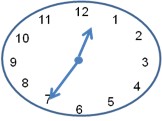A client is admitted to the psychiatric unit complaining of feeling invisible "parasites" biting her skin. She complains of overwhelming fatigue and body aches
She suffers from hair loss, skin lesions, rashes, and blue or red "fibers" that sprout from her lesions. She sees tiny black specks, like coffee grounds, on her arms. After expressing how frightening it must be to feel this way, what assessment question should the nurse ask next? A) "Can you show me the lesions and black specks?"
B) "Are these feelings causing you to want to hurt yourself in anyway?"
C) "What did your doctor tell you about these complaints?"
D) "When did you start noticing these symptoms?"
B
You might also like to view...
The staff nurses and nursing administration are attempting to construct a method of scheduling meeting the needs of both the clients and the nursing personnel
Because nurses and nursing administration have experienced conflict about the issue, their intent is to arrive at an agreeable solution between both parties. This process best exemplifies: 1. Negotiation. 2. Accommodation. 3. Forcing. 4. Consensus.
A nurse is caring for a child who has hemophilia. While reviewing this child's immunization records, the nurse notes that the child needs the tetanus and reduced diphtheria toxoids and acel-lular pertussis (Tdap) vaccine and the hepatitis A vaccine
. The nurse should notify the provider and obtain an order to give: a. both vaccines intramuscularly. b. both vaccines subcutaneously. c. the hepatitis A vaccine only subcuta-neously. d. the Tdap vaccine only intramuscularly.
A couple comes in for an infertility workup, having attempted to get pregnant for 2 years. The woman, 37, has always had irregular menstrual cycles but is otherwise healthy
The man has fathered two children from a previous marriage and had a vasectomy reversal 2 years ago. The man has had two normal semen analyses, but the sperm seem to be clumped together. What additional test is needed? a. Testicular biopsy b. Antisperm antibodies c. Follicle-stimulating hormone (FSH) level d. Examination for testicular infection
Which of the following is the time indicated on the clock? 
A. 0035 B. 0700 C. 7:00 a.m. D. 12:40 p.m.